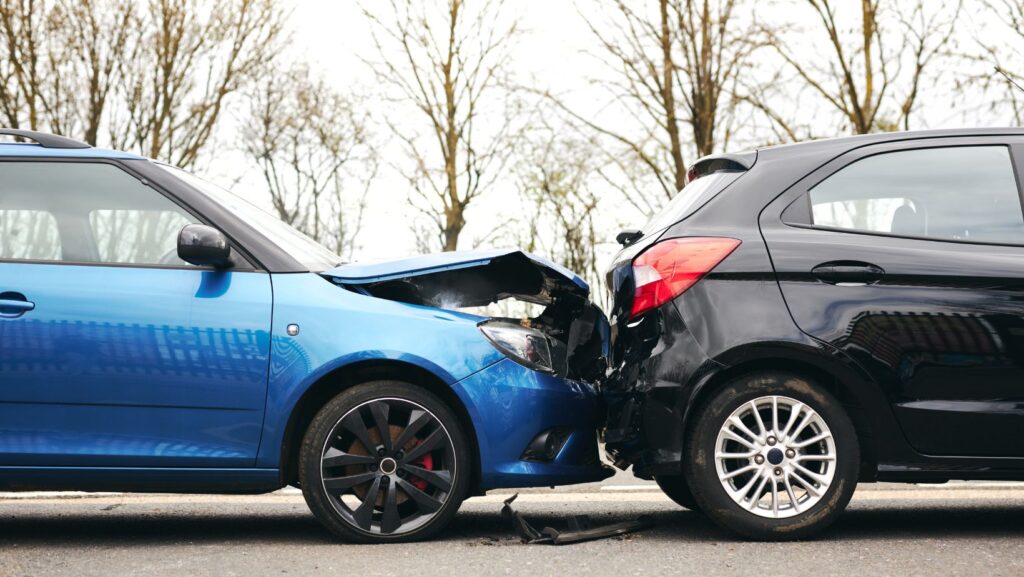Car accidents are an unexpected and often overwhelming experience and, in the immediate aftermath, your emotions can run high. This can make it very easy to be unsure about what you should do next. However, knowing how to handle the situation can make a major difference in protecting your safety, legal rights, and financial well-being. Learn all the essential steps to take after a car accident so that you can ensure you are prepared to handle the unexpected with confidence and clarity.
Ensure Everyone is Safe
The first and most important priority to keep in mind after an accident is ensuring that everyone who was involved in the crash is safe. If the accident is minor and your vehicle is drivable, consider moving it to the side of the road or to a safe location to prevent further collision. If the accident happens to occur on a busy road or at night, using flares or reflective triangles to increase visibility is an excellent choice. For legal guidance following an accident, Malloy Law Offices, LLC offers experienced representation to help you navigate your personal injury claim.
In the event someone is injured, don’t hesitate to call emergency services. Always avoid moving an injured person unless there is a present and immediate danger like a fire. Remain as calm and focused as possible during this stage so that you don’t inadvertently cause additional harm.
Document the Scene
Thorough documentation of the accident scene will be crucial for insurance claims and any potential legal proceedings. Begin this stage by taking clear photos of the accident and capture any and all damage to vehicles, license plates, road conditions, traffic signs, and anything else that may be relevant. These images will provide direct evidence of what occurred.
Also, exchange contact information and insurance information with the other driver(s) including your name, phone number, and policy numbers. If there are any witnesses who say what occurred, consider politely asking for their contact information as their statement may help your case as one of the key grounds to file a car accident claim in court.
Finally, calling the police may not be required depending on the specifics of the accident you were involved in, but it’s still recommended as officers can assess the scene and any disputes. This can carry significant weight in insurance claims or legal cases as it can provide an impartial account of what happened.
Seek Out Medical Attention
Your health and well-being are of paramount importance after an accident even if you feel fine initially after the crash. Many injuries such as whiplash or a concussion may not immediately be apparent, not to mention the fact that adrenaline can mask pain and symptoms may not surface for hours or even days. Seeking prompt medical attention will ensure that any injuries are documented and treated early.

Medical records will also play a vital role in any personal injury claims you file as they will serve as proof of your injuries and the impact those injuries have had on your life. By skipping this step, you may be jeopardizing your ability to seek compensation for medical expenses or other damages.
Notify Your Insurance Company
Contacting your insurance provider is a key step to consider in starting the claims process. Report the accident to your insurer as soon as possible and provide them with an accurate and detailed recount of what happened. Many insurance companies actually have specific timeframes within which you need to report accidents, so acting quickly is important.
Be cautious about what you say during initial communication with your insurance company, though, as admitting fault or agreeing to record a statement without first consulting an attorney can lead to issues. These statements can be used against you during the claims process and lead to you being unable to recoup compensation. By understanding the claims process with your insurance company along with your coverage, you can ensure you receive the compensation you are entitled to for property damage, medical bills, and other losses.
Understand Your Legal Rights
In certain cases, you may need legal assistance to navigate disputes following an accident, to negotiate with insurance companies, or to pursue a lawsuit. You should consider consulting a car accident lawyer if you have sustained serious injuries in your accident, the other driver’s insurance company disputes liability, or if you are offered a settlement that doesn’t cover your damages.
An experienced lawyer will be able to negotiate with insurers on your behalf, thus ensuring you receive a fair settlement. They will also guide you through the legal process if your case goes to court which will help you to build a strong case with evidence and expert testimony. Also, be aware of any deadlines which may be in place such as the statute of limitations for filing a personal injury lawsuit as missing these deadlines could bar you from seeking compensation entirely.
Prevent Future Stress
Car accidents are unpredictable, but being prepared can make handling them far easier. Always keep an emergency kit in your vehicle that includes essentials such as a first-aid kit, a flashlight, reflective triangles, and a phone charger. By being prepared, you can respond to accidents more effectively.

On top of this, review your insurance coverage to ensure that you have adequate protection, including options such as uninsured motorist coverage, as this extra protection can be invaluable if the at-fault driver for the accident lacks insurance.
Protect your rights following a car accident
Car accidents are stressful, but taking the right steps after the fact can protect your health, rights, and finances. Prioritize everyone’s safety, document the scene, seek medical attention for yourself, and review your legal options to ensure you are able to navigate the aftermath of your accident with confidence. If you find yourself facing challenges with insurance companies or need additional assistance in pursuing a personal injury claim, consult with a qualified car accident lawyer for expert guidance. Preparedness and the right support can turn a very chaotic situation into a manageable one that ensures you can get back on the road with peace of mind.


